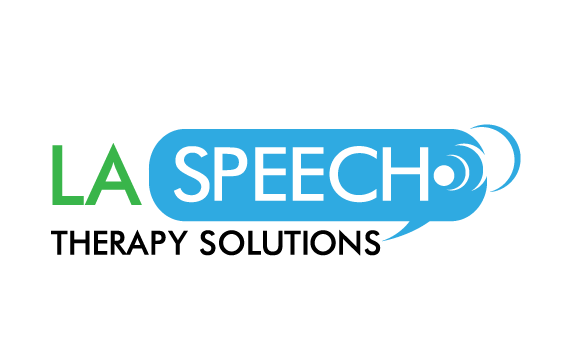
Understanding the Need for Speech Therapy
Speech therapy is essential for individuals who face challenges with communication, whether due to developmental delays, medical conditions, or speech disorders. Identifying the need for professional intervention is the first step toward improving speech and language skills.
A. Signs That You or Your Child May Need Speech Therapy
Recognizing the early signs of speech and language difficulties can make a significant difference in progress and treatment outcomes. Here are some indicators that speech therapy may be beneficial:
-
Speech delays or difficulty pronouncing words – If a child struggles to form words at an expected developmental stage or an adult has ongoing pronunciation issues, therapy can help improve articulation.
-
Stuttering, lisping, or trouble forming sentences – Frequent disruptions in speech, such as difficulty in fluency or clarity, may require targeted interventions.
-
Struggles with understanding or processing language – Difficulty in comprehending spoken or written language can impact learning and communication.
-
Speech difficulties due to medical conditions – Disorders like autism, stroke, brain injury, or neurological conditions can affect speech and require specialized therapy.
Early intervention is crucial in addressing these concerns, ensuring that communication barriers do not hinder social, academic, or professional development.
B. Types of Speech Therapy
Speech therapy is not one-size-fits-all; different approaches are used based on an individual’s needs and challenges. Understanding the various types of therapy available can help in selecting the right speech therapist.
1. Pediatric vs. Adult Speech Therapy
-
Pediatric speech therapy focuses on helping children overcome speech and language difficulties, whether due to developmental delays or conditions like autism or apraxia.
-
Adult speech therapy is designed for individuals facing communication challenges due to medical conditions such as stroke, brain injury, or degenerative disorders.
2. Therapy for Specific Speech and Language Disorders
Speech therapists work with patients to address a range of communication issues, including:
-
Articulation therapy – Helps individuals with pronunciation difficulties or speech sound errors.
-
Fluency therapy – Designed for those who struggle with stuttering or other fluency disorders.
-
Voice therapy – Assists individuals experiencing vocal strain, pitch problems, or disorders that affect voice quality.
-
Language comprehension therapy – Supports individuals who have trouble understanding spoken or written language.
3. Specialized Therapy for Medical Conditions
Certain medical conditions require highly specialized speech therapy approaches, such as:
-
Aphasia therapy – Helps individuals recovering from a stroke or brain injury who struggle with language comprehension and communication.
-
Apraxia therapy – Designed for those who have difficulty coordinating muscle movements for speech.
-
Dysarthria therapy – Assists individuals with weak or uncoordinated speech muscles due to neurological disorders.
Choosing the right speech therapist is a crucial decision that can significantly impact speech and language development. Whether seeking therapy for a child or an adult, several key factors must be considered to ensure the best possible outcome. From credentials and experience to therapy methods and affordability, this guide will help navigate the process of selecting the most suitable speech therapist.
Key Factors to Consider When Choosing a Speech Therapist
A. Qualifications and Credentials
Before selecting a speech therapist, verifying their qualifications is essential. A well-trained professional should have certifications from recognized boards, such as the American Speech-Language-Hearing Association (ASHA) in the U.S. Additionally, checking their educational background and specialized training in speech-language pathology ensures they are equipped to handle specific speech disorders.
It is also advisable to ask about their experience with various speech conditions, such as articulation disorders, stuttering, or language delays. A therapist with the right credentials and relevant expertise can provide targeted and effective therapy.
B. Experience and Specialization
Speech therapists often specialize in different areas, making it important to find one experienced in treating specific speech concerns. Some therapists work primarily with children, focusing on early speech development and language acquisition, while others specialize in adult speech therapy, addressing challenges such as post-stroke rehabilitation or voice disorders.
Additionally, reviewing their previous success stories or case studies can provide insight into their effectiveness. A therapist with a strong track record is more likely to deliver positive results.
C. Therapy Methods and Approach
The effectiveness of speech therapy largely depends on the techniques used. Some therapists utilize traditional methods, while others incorporate innovative techniques such as play-based therapy for children or technology-assisted therapy for remote sessions.
Ensuring that the therapy style aligns with the patient’s learning preference is crucial. For instance, a child may respond better to interactive, play-based therapy, whereas an adult might benefit more from structured speech exercises. Some therapists also adopt a holistic or multidisciplinary approach, collaborating with occupational therapists or psychologists for comprehensive treatment.
D. Location and Availability
Another critical factor is whether to opt for in-person or online speech therapy. Both options have benefits and drawbacks. In-person sessions provide hands-on guidance and direct interaction, while online therapy offers flexibility and accessibility, especially for those in remote areas.
Proximity to home or school and the therapist’s availability should also be considered. Flexible scheduling can be beneficial, particularly for working professionals or school-going children. Additionally, understanding the recommended frequency and duration of sessions can help in planning therapy effectively.
E. Parental Involvement and Home Support (For Children)
For children undergoing speech therapy, parental involvement plays a vital role in progress. Some therapists encourage parents or caregivers to participate actively in sessions, while others provide home exercises and strategies to reinforce learning.
Understanding the level of parental involvement required and the availability of additional home support materials can help parents track and enhance their child’s progress outside therapy sessions.
F. Cost and Insurance Coverage
Speech therapy costs vary based on location, therapist experience, and session duration. Before making a decision, it is important to inquire about cost per session and total estimated expenses. Some therapists accept insurance coverage or offer flexible payment plans, making therapy more accessible.
Additionally, exploring community programs or government assistance for speech therapy can help reduce financial burdens, ensuring that quality therapy remains affordable for those in need.





